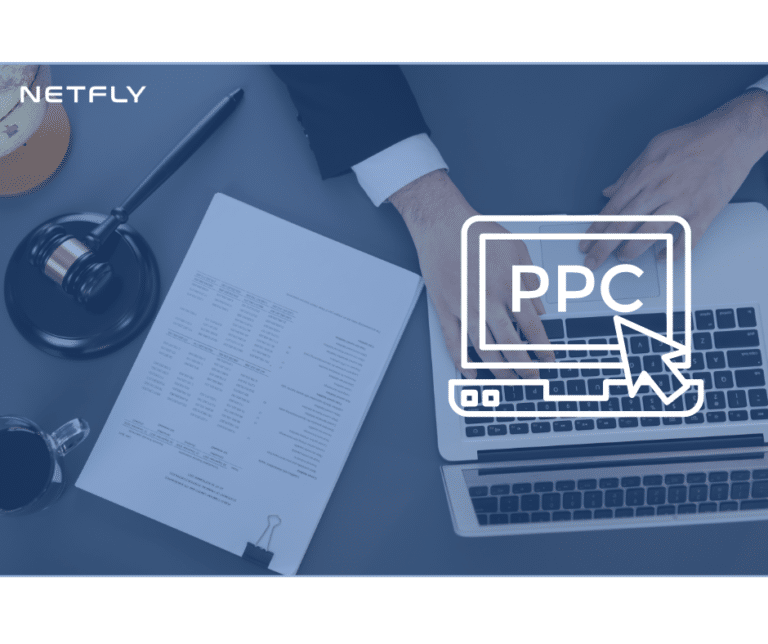Imagine a law firm that saw a significant increase in client inquiries and positive online reviews after implementing a targeted branding and reputation management strategy. By understanding the importance of a strong brand and proactive reputation management, your law firm can also achieve similar success in today’s competitive market. Building an unshakable brand requires strategic planning and consistent effort, but the rewards of enhanced credibility and trust are invaluable. Let’s explore the key components that can help your law firm establish a resilient brand identity and reputation in the legal industry.
Key Takeaways
- Develop a cohesive brand identity resonating with target audience values.
- Maintain consistent messaging across all platforms for trust and credibility.
- Showcase expertise through thought leadership content and positive testimonials.
- Implement online reputation monitoring and crisis response strategies.
- Engage with audience on social media, foster connections, and enhance online presence.
Brand Identity Development
When crafting your law firm’s brand identity, focus on creating a cohesive and memorable representation that resonates with your target audience’s values and needs. Brand positioning is essential in differentiating your firm from competitors by highlighting what sets you apart. Consider what unique qualities or services your firm offers and how you want to be perceived in the market.
Visual storytelling plays a significant role in brand identity development. Utilize visuals such as logos, color schemes, and imagery that reflect your firm’s values and messaging. These visual elements should be consistent across all platforms to create a strong and recognizable brand presence. When your audience sees these visuals, they should immediately associate them with your law firm.
To effectively position your brand, conduct thorough research on your target audience’s preferences and behaviors. Understand what resonates with them and tailor your brand identity to align with their expectations. By connecting with your audience on a deeper level through your brand positioning and visual storytelling, you can build trust and loyalty.
Consistent Brand Messaging
When it comes to building a strong brand for your law firm, one important aspect is ensuring consistent messaging across all platforms.
Your brand voice alignment and messaging cohesion are essential for creating a unified identity that resonates with your audience.
Consistency in how you communicate your values, services, and mission helps establish trust and credibility with clients.
Brand Voice Alignment
To establish a lasting impression and foster trust with your audience, maintaining a consistent brand voice across all communication channels is crucial for your law firm’s success. Your brand messaging should reflect your firm’s values, tone, and personality to resonate with your audience and build credibility.
Consistency in your communication reinforces your reputation building efforts, making your brand more recognizable and reliable. Make sure that your brand voice aligns with your firm’s identity and resonates with your target audience to create a cohesive and impactful message.
Messaging Cohesion
Maintaining a consistent brand voice across all communication channels is crucial to reinforcing your law firm’s identity and enhancing credibility, especially when focusing on messaging cohesion for consistent brand messaging. To guarantee brand messaging coherence and reputation building, follow these strategic steps:
- Develop a detailed brand messaging guide outlining tone, language, and key brand attributes.
- Implement regular training sessions to educate your team on the importance of messaging consistency for trust establishment.
- Conduct regular audits to review all communication materials and ensure they align with the established brand voice.
- Engage with your audience consistently across different platforms to reinforce brand messaging and build a strong reputation.
Establishing Trust and Authority
Establishing trust and authority in the legal field is paramount for Tier-1 law firms looking to solidify their reputation and attract high-value clients. Building credibility, trustworthiness, and expertise are foundational elements that contribute to a law firm’s reputation enhancement. To achieve this, focus on client relationship building as a core strategy.
To build credibility, showcase your firm’s expertise through thought leadership content, participation in industry events, and obtaining certifications or awards. Engage with your audience by sharing valuable insights on legal matters through webinars, blogs, or social media platforms. By consistently delivering high-quality and reliable information, you demonstrate your trustworthiness to potential clients.
Additionally, reputation enhancement can be achieved by actively seeking feedback from clients and addressing any concerns promptly and professionally. Highlight positive testimonials and case results to showcase your firm’s successful track record. By emphasizing transparency and ethical practices, you can further solidify your reputation as a trustworthy legal partner.
Client relationship building is another pivotal aspect of establishing trust and authority. Foster open communication, provide personalized attention, and prioritize client satisfaction to strengthen relationships and encourage repeat business and referrals. By prioritizing these elements, Tier-1 law firms can establish themselves as reliable and authoritative partners in the legal industry.
Online Reputation Monitoring
Building an online presence that accurately reflects your law firm’s values and expertise is crucial to maintaining a strong reputation in the digital landscape. To guarantee your online reputation remains positive and impactful, consider the following strategies:
- Implement Reputation Monitoring Techniques: Utilize advanced tools to track mentions of your law firm across various online platforms. Monitoring your reputation allows you to promptly address any negative feedback and reinforce positive sentiments.
- Conduct Online Sentiment Analysis: Analyze the tone and context of online mentions about your law firm. Understanding the sentiment behind these mentions can help you gauge public perception and tailor your responses accordingly.
- Develop Crisis Response Strategies: Prepare a robust plan to address any potential reputation crises swiftly and effectively. Having predefined protocols in place can mitigate the impact of negative events on your firm’s reputation.
- Engage in Competitor Benchmarking: Monitor and analyze the online reputation of your competitors to identify areas where your firm can differentiate itself. Benchmarking against competitors can provide valuable insights for enhancing your own reputation management strategies.
Managing Client Feedback Effectively
Effectively managing client feedback is vital for law firms aiming to enhance their service quality and reputation in a competitive market. Feedback analysis plays an important role in understanding your clients’ experiences, expectations, and areas for improvement. By actively seeking and analyzing client feedback, you can identify patterns, address concerns promptly, and ultimately enhance overall client satisfaction.
To effectively manage client feedback, start by establishing clear channels for clients to provide their input. Encourage open communication through surveys, feedback forms, or follow-up calls after services are rendered. Actively listen to what clients have to say, both positive and negative, to gain valuable insights into their perceptions of your firm.
Once you have collected feedback, analyze it thoroughly to identify recurring themes or issues. Categorize feedback based on the nature of the comments, such as communication, responsiveness, or expertise. By categorizing feedback, you can prioritize areas for improvement and tailor your strategies to enhance client satisfaction effectively.
Moreover, it’s essential to act on the feedback received. Address any negative feedback promptly, acknowledge the concerns raised, and take concrete steps to rectify the issues. By demonstrating a commitment to addressing client feedback, you not only improve client satisfaction but also showcase your firm’s dedication to providing exceptional service.
Leveraging Social Media Presence
When it comes to building an unshakable brand for your law firm, leveraging your social media presence is vital. Engaging with your audience on platforms like Facebook, Twitter, and LinkedIn can help you showcase your brand identity effectively.
Social Media Engagement
To enhance your law firm’s online presence and foster meaningful connections with your audience, mastering social media engagement is paramount. Here are four key strategies to elevate your social media game:
- Consistent Posting: Regularly share valuable content to keep your audience engaged and informed.
- Engagement Tactics: Respond promptly to comments and messages to show your firm’s dedication to client interaction.
- Visual Appeal: Utilize eye-catching visuals and multimedia elements to make your posts more engaging.
- Strategic Hashtag Use: Research and incorporate relevant hashtags to expand your reach and connect with a broader audience.
Brand Identity Showcase
Leveraging your law firm’s social media presence to showcase a distinctive brand identity requires meticulous planning and engaging content strategies. Start by conducting a thorough brand identity evaluation to understand what sets your firm apart.
Tailor your content to reflect your unique values and expertise, positioning your firm as a trusted authority in the legal field. Implement reputation-building strategies such as sharing client testimonials, case studies, and thought leadership pieces to establish credibility and foster trust with your audience.
Consistency in tone, visuals, and messaging across all social media platforms is key to reinforcing your brand identity. By strategically leveraging your social media presence, you can effectively communicate your firm’s values and expertise to attract and retain clients.
Handling Crisis Communications
In times of crisis, how effectively your law firm communicates can either mitigate or exacerbate the situation’s impact on your reputation and client relationships. When facing challenging circumstances, it’s vital to handle crisis communications with precision and care to protect your brand image.
Here are four key strategies to navigate crisis communication effectively:
- Swift Response: Address the issue promptly and transparently. Delayed responses can lead to speculation and worsen the situation. By acknowledging the problem swiftly, you show accountability and a commitment to resolving the issue.
- Honesty and Transparency: Be truthful in your communication. Transparency builds trust with your clients and stakeholders. Providing accurate information, even if it reflects negatively on your firm, demonstrates integrity and a willingness to confront challenges head-on.
- Consistent Messaging: Ensure that all communications, whether internal or external, convey a consistent message. Misaligned information can create confusion and erode trust. By maintaining coherence in your messaging, you project a united front during turbulent times.
- Learn and Improve: After managing the crisis, conduct a thorough evaluation of your communication strategies. Identify areas for improvement and implement changes to prevent similar incidents in the future. Turning a crisis into an opportunity for growth showcases your firm’s resilience and commitment to continuous improvement.
Collaborating With Influencers
When considering collaborating with influencers for your law firm, you’ll explore an influencer selection process customized to resonate with your target audience.
Discover the advantages of influencer collaborations in enhancing your firm’s brand visibility and credibility.
Implementing effective influencer campaigns can greatly amplify your firm’s reach and engagement with potential clients.
Influencer Selection Process
To effectively collaborate with influencers, law firms need to meticulously analyze the influencer selection process to guarantee alignment with their brand values and target audience. Here’s how you can streamline your influencer selection:
- Define Your Goals: Clearly outline what you aim to achieve through influencer collaboration.
- Audience Relevance: Make sure the influencer’s audience matches your target demographic.
- Authenticity Check: Verify the influencer’s authenticity and alignment with your brand values.
- Engagement Evaluation: Assess the influencer’s engagement rates and audience interaction to gauge effectiveness.
Benefits of Influencer Collaborations
Analyzing the influencer selection process lays a strong foundation for law firms to leverage the numerous benefits that come with collaborating with influencers. By forming strategic influencer partnerships, your law firm can tap into new audiences and enhance brand advocacy.
Influencers bring a level of authenticity and credibility that can resonate with potential clients, helping to boost your firm’s reputation and visibility. Through influencer collaborations, you can showcase your expertise in a more relatable and engaging manner, reaching a wider demographic.
This form of partnership not only expands your reach but also allows for a more personalized connection with your target audience, ultimately strengthening your firm’s brand presence in the competitive legal landscape.
Effective Influencer Campaigns
Leveraging strategic influencer campaigns can greatly enhance your law firm’s brand visibility and audience engagement. Here are four key strategies to maximize your influencer partnerships and boost campaign effectiveness:
- Identify Relevant Influencers: Choose influencers whose audience aligns with your target market to guarantee maximum impact.
- Set Clear Campaign Goals: Define specific objectives such as brand awareness, lead generation, or thought leadership to measure success.
- Create Authentic Partnerships: Encourage influencers to authentically engage with your brand to establish credibility and trust with their followers.
- Track and Analyze Metrics: Monitor key performance indicators like reach, engagement, and conversions to evaluate the campaign’s effectiveness and make data-driven decisions for future collaborations.
Implementing SEO Strategies
When looking to enhance your law firm’s online visibility and attract quality leads, implementing effective SEO strategies is essential. To boost your firm’s digital presence, it’s important to focus on SEO optimization techniques and keyword strategy implementation.
SEO optimization techniques involve optimizing your website to rank higher in search engine results. This includes improving website speed, creating high-quality content, using relevant keywords, and obtaining backlinks from reputable sources. By implementing these techniques, you can enhance your website’s visibility and attract more potential clients.
Keyword strategy implementation is another important aspect of SEO. Conduct thorough keyword research to identify the terms your target audience is searching for. Integrate these keywords naturally into your website content, meta descriptions, headings, and URLs. By strategically placing these keywords throughout your site, you can improve your chances of ranking higher in search results when potential clients are looking for legal services.
Incorporating these SEO strategies into your law firm’s online marketing efforts can have a significant impact on your visibility and lead generation. By focusing on SEO optimization techniques and keyword strategy implementation, you can attract more qualified leads and establish your firm as a reputable authority in the legal industry.
Measuring Brand Success and Improvement
To assess the effectiveness of your law firm’s branding efforts, it’s essential to establish clear metrics for measuring brand success and improvement. Tracking brand perception and defining success metrics are key components in evaluating the impact of your reputation enhancement strategies.
Here are four essential steps to help you measure and enhance your law firm’s brand:
- Conduct Brand Perception Surveys: Regularly gather feedback from clients, employees, and other stakeholders to gauge their perception of your firm’s brand. Use this data to identify areas for improvement and track changes over time.
- Track Online Reputation: Monitor online reviews, social media mentions, and other digital channels to assess how your brand is perceived in the digital sphere. Utilize tools that provide sentiment analysis to understand the overall sentiment towards your firm.
- Measure Brand Awareness: Use metrics such as website traffic, social media engagement, and brand mentions to track the reach of your brand. Analyze the effectiveness of your marketing campaigns in increasing brand visibility.
- Evaluate Client Loyalty: Measure client retention rates, referrals, and client satisfaction scores to determine the strength of your client relationships. A loyal client base is a strong indicator of a reputable and trustworthy brand.
Frequently Asked Questions
How Can Storytelling Enhance Our Law Firm’s Brand Image?
Using personal narratives in your law firm’s branding can deeply resonate with clients, fostering stronger relationships. Sharing stories humanizes your brand, creating emotional connections and building trust.
What Role Does Emotional Branding Play in Reputation Management?
Emotional branding is pivotal in reputation management as it fosters a deep emotional connection with clients, nurturing customer loyalty.
By tapping into emotions, law firms can differentiate themselves and build lasting relationships. Crafting a brand narrative that resonates emotionally can enhance trust and credibility, influencing how clients perceive and engage with your firm.
Leveraging emotional branding strategies strategically can set your law firm apart and solidify its reputation in the competitive legal landscape.
Is It Essential to Monitor Online Reviews for Brand Reputation?
Ensuring a strong online presence means monitoring client feedback through online reviews. This practice is essential for managing your brand reputation effectively.
How Can Law Firms Use Social Media to Build Credibility?
To build credibility, law firms can leverage social media through thought leadership content and influencer partnerships. Establish yourself as an expert by sharing valuable insights, engaging with industry trends, and showcasing your firm’s knowledge.
Collaborating with influencers in the legal field can amplify your reach and enhance your reputation.
Consistent, strategic social media presence can help you connect with your audience, showcase your expertise, and build trust in your brand.
What Are the Key Metrics to Track for Brand Improvement?
When focusing on brand improvement, key metrics to track include customer engagement and brand awareness. Monitoring customer engagement through metrics like social media interactions, website traffic, and email open rates can gauge audience interest and satisfaction.
Evaluating brand awareness metrics such as reach, impressions, and share of voice provides insights into how well your brand is recognized in the market. Tracking these metrics helps refine strategies for a stronger brand presence.
Final Thoughts
By focusing on brand identity, consistent messaging, and thought leadership, you can establish trust and authority for your law firm.
Monitoring reputation, managing feedback, and handling crises effectively are essential for maintaining a strong brand.
Collaborating with influencers, implementing SEO strategies, and measuring success will guarantee continuous improvement.
Remember, building an unshakable brand requires dedication, strategy, and adaptability in the ever-evolving digital landscape.










